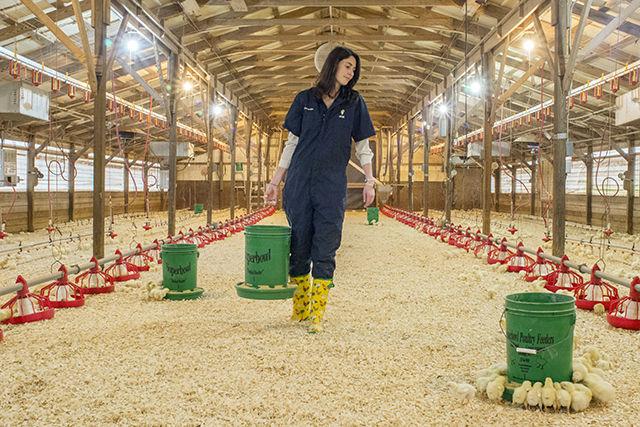All public shows and poultry sales, including those at the State Fair, will be suspended starting in August in an attempt to prevent the spread of Avian flu, state officials announced last week. The ban will run from August 15 to Jan. 15, 2016.
The suspension of poultry shows and sales will be a disappointment to many of those who auction their poultry or bring birds to the State fair for competitions. More than 300 people entered birds in contests at the State fair last year, according to the News & Observer.
In addition, children who raise chicken or turkeys in conjunction with participating in 4-H programs will not have the opportunity to display any of their birds.
State Veterinarian Doug Meckes made the decision to suspend the shows. Eleven other states in the country have placed similar bans on poultry shows, he said.
“If the virus is introduced here, we want to make sure it’s isolated and isn’t spread around,” said Donna Carver, an extension poultry veterinarian and professor in the Prestage Poultry Science Department at NC State.
If the virus is found on any property in North Carolina, the entire area up to 6 miles radius around it will be quarantined. Birds found to be infected with the virus will be humanely euthanized and disposed of, according to the standards set by the Department of Agriculture.
The virus is not harmful to humans, and no human has ever been infected with this strain of avian flu, according to according to state officials. Properly cooked poultry and eggs are safe to eat.
“It’s not a public health issue, it’s a poultry health issue,” Carver said.
Officials fear that avian flu, which has not yet spread to the southeast part of the country, will enter North Carolina during the winter migration of waterfowl, birds that live on or near water. When these birds move South for the winter, they carry viruses which could then be spread to poultry and other birds in North Carolina.
“A lot of birds in NC are pastured, which means they potentially have contact with wild birds,” Carver said. “During their incubation period, from when they have been exposed to the virus to when they start showing symptoms, we fear that these birds can be brought to the state fair.”
Geese and ducks carry the influenza during migration periods, according to Carver. The influenza virus lives in wet conditions, such as ponds, where they can then infect other types of birds such as turkeys and chickens.
“Backyard spots are more susceptible because those birds are outside all the time,” Carver said. “We highly suspect we will see it this fall.”
North Carolina is the fourth-largest producer of chickens for meat, and the third-largest producer of turkeys in the country. An outbreak of avian flu in North Carolina could have an economic effect on the state if countries importing our poultry products decide to issue an embargo.
“If an embargo like that were to happen in North Carolina, I believe it would lead to a surplus of poultry,” Carver said. “Other states shouldn’t be affected by it, unless avian flu is found there too. Something like this could happen to any poultry state at any time.”








